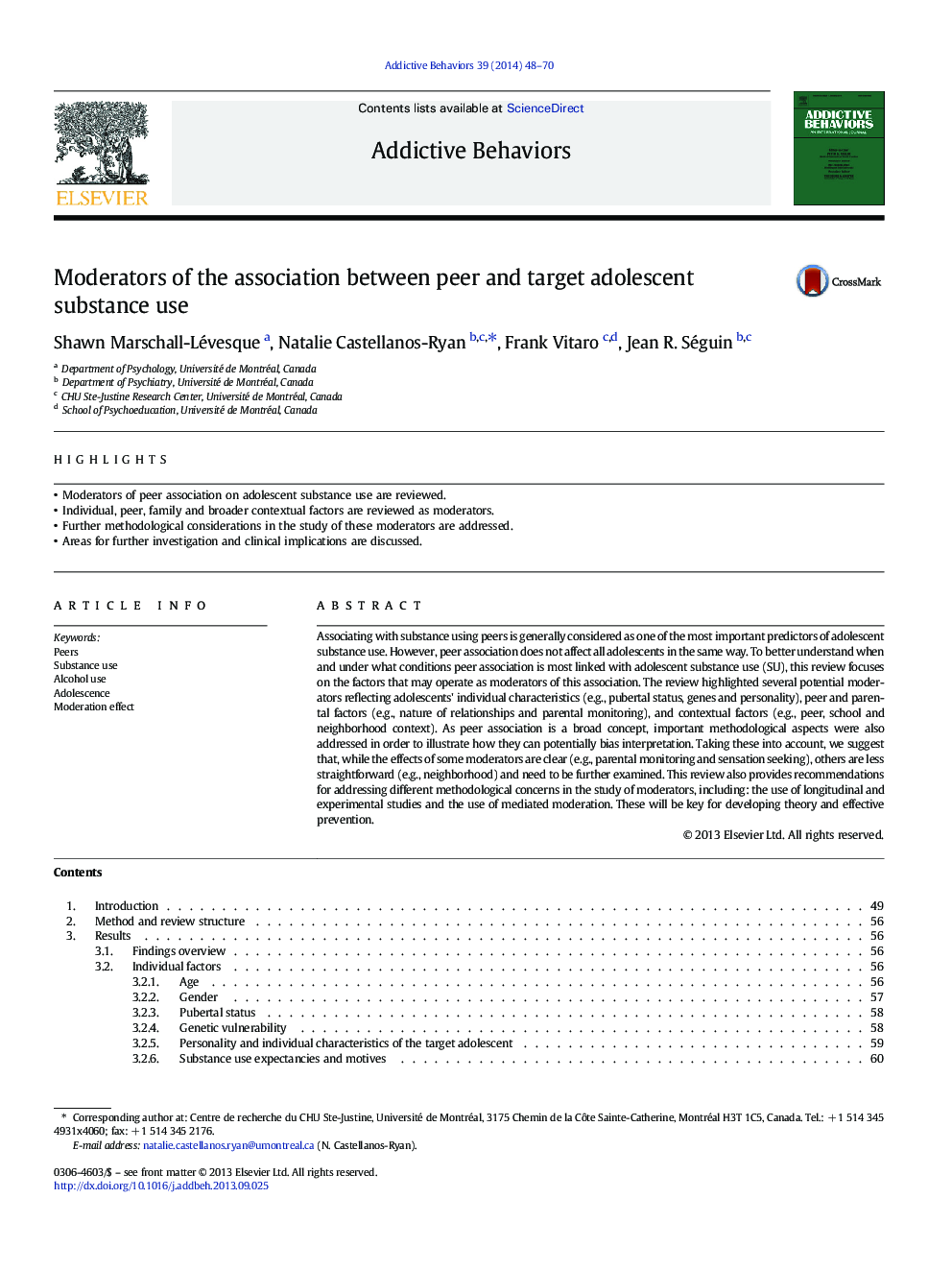| Article ID | Journal | Published Year | Pages | File Type |
|---|---|---|---|---|
| 898974 | Addictive Behaviors | 2014 | 23 Pages |
•Moderators of peer association on adolescent substance use are reviewed.•Individual, peer, family and broader contextual factors are reviewed as moderators.•Further methodological considerations in the study of these moderators are addressed.•Areas for further investigation and clinical implications are discussed.
Associating with substance using peers is generally considered as one of the most important predictors of adolescent substance use. However, peer association does not affect all adolescents in the same way. To better understand when and under what conditions peer association is most linked with adolescent substance use (SU), this review focuses on the factors that may operate as moderators of this association. The review highlighted several potential moderators reflecting adolescents' individual characteristics (e.g., pubertal status, genes and personality), peer and parental factors (e.g., nature of relationships and parental monitoring), and contextual factors (e.g., peer, school and neighborhood context). As peer association is a broad concept, important methodological aspects were also addressed in order to illustrate how they can potentially bias interpretation. Taking these into account, we suggest that, while the effects of some moderators are clear (e.g., parental monitoring and sensation seeking), others are less straightforward (e.g., neighborhood) and need to be further examined. This review also provides recommendations for addressing different methodological concerns in the study of moderators, including: the use of longitudinal and experimental studies and the use of mediated moderation. These will be key for developing theory and effective prevention.
